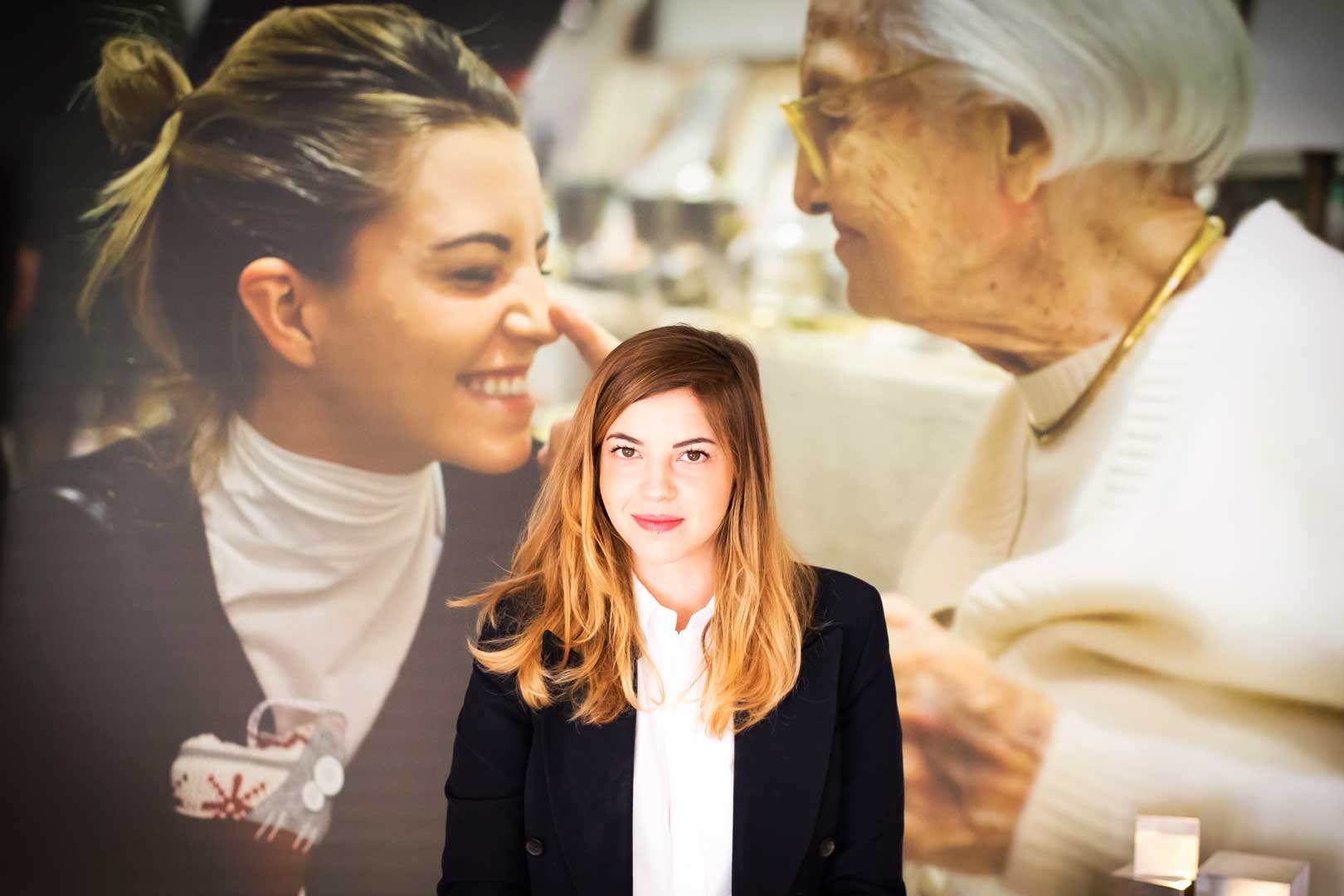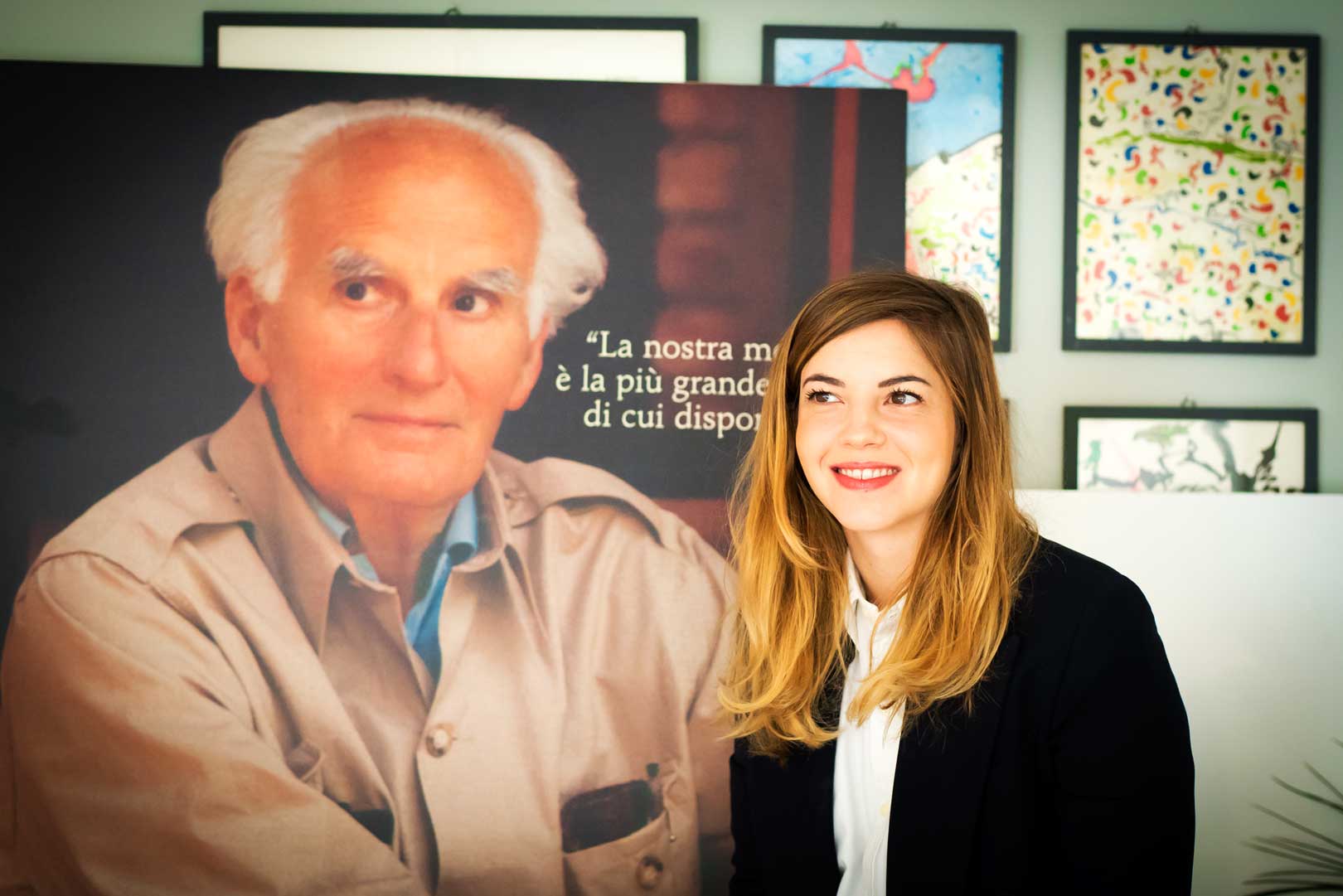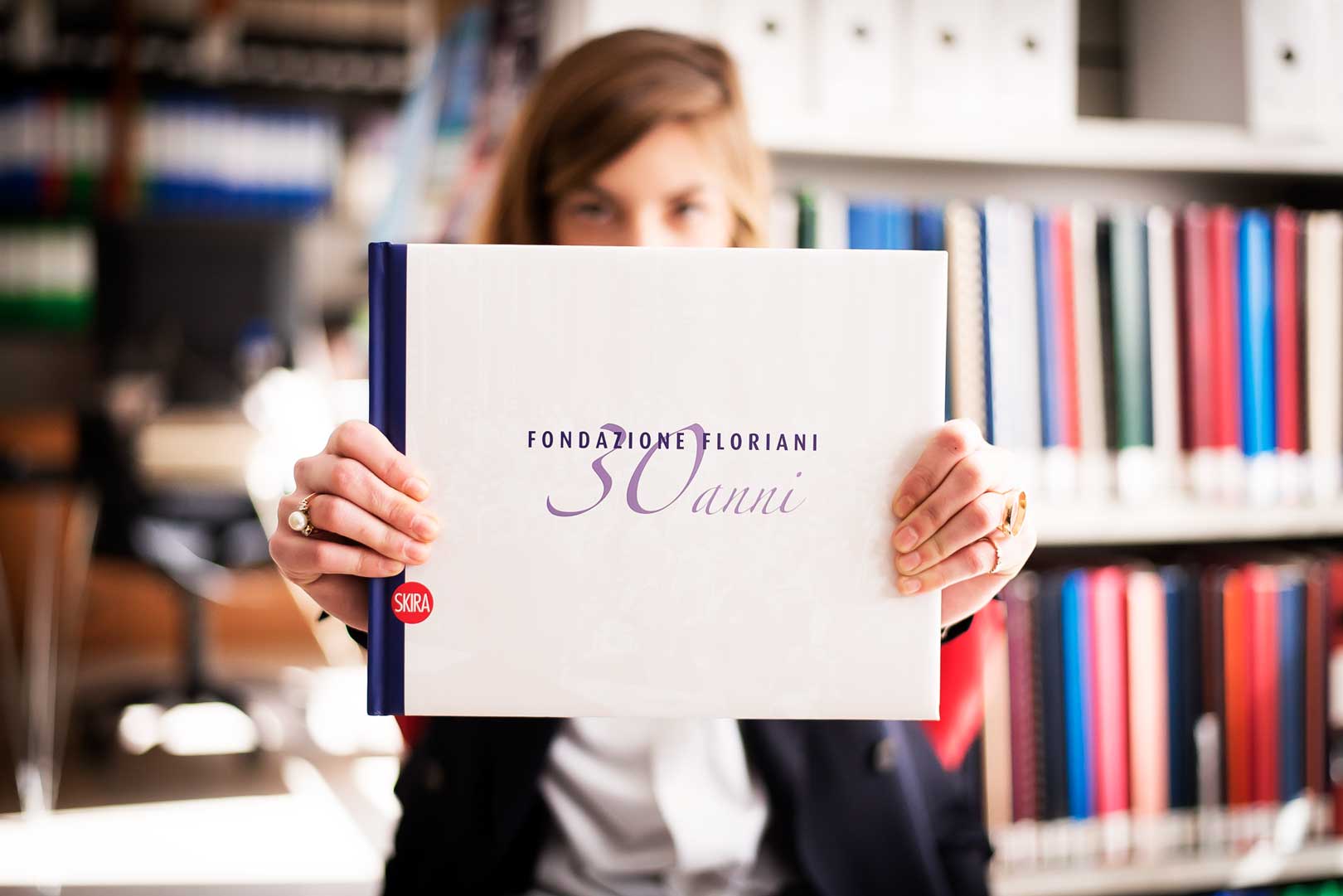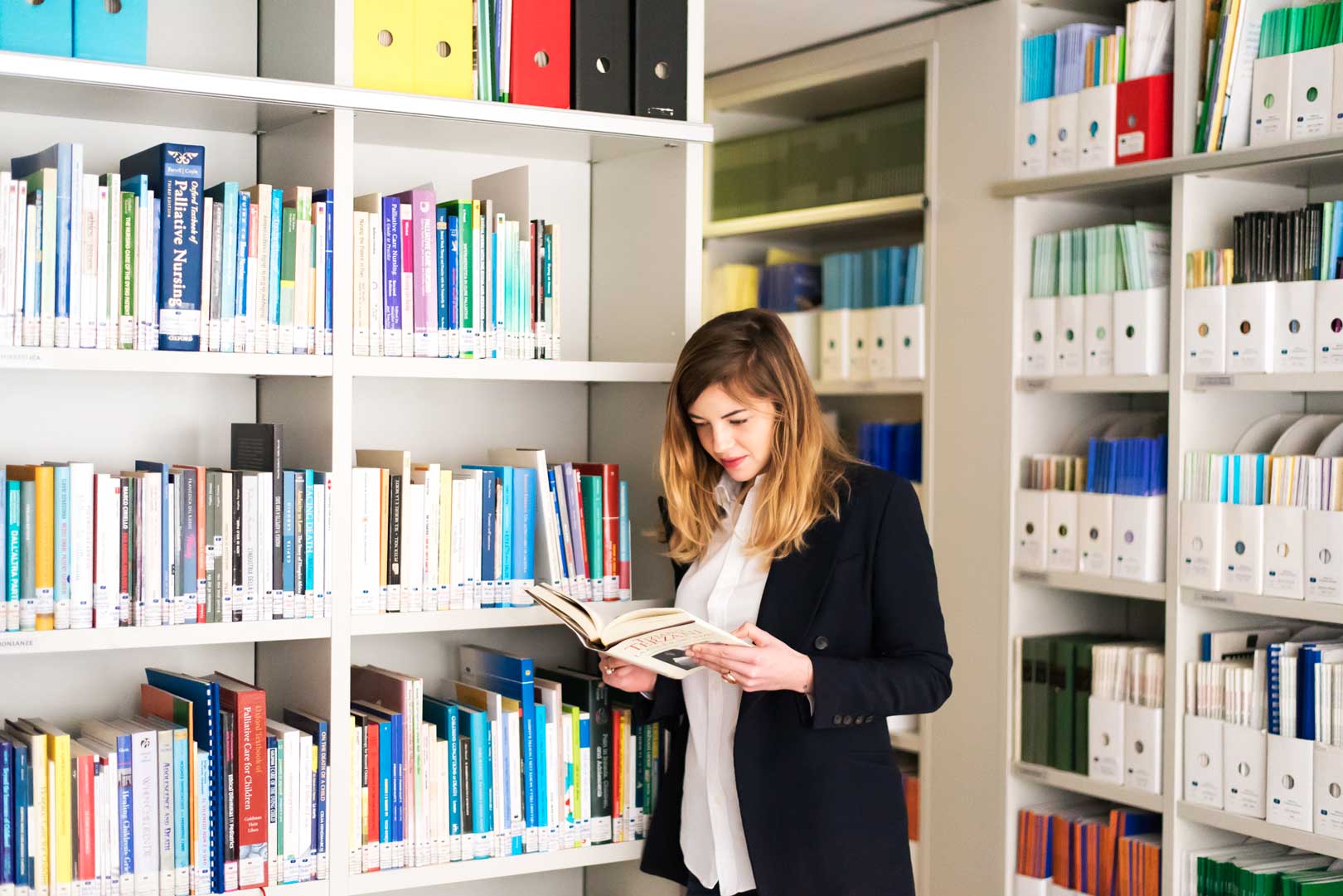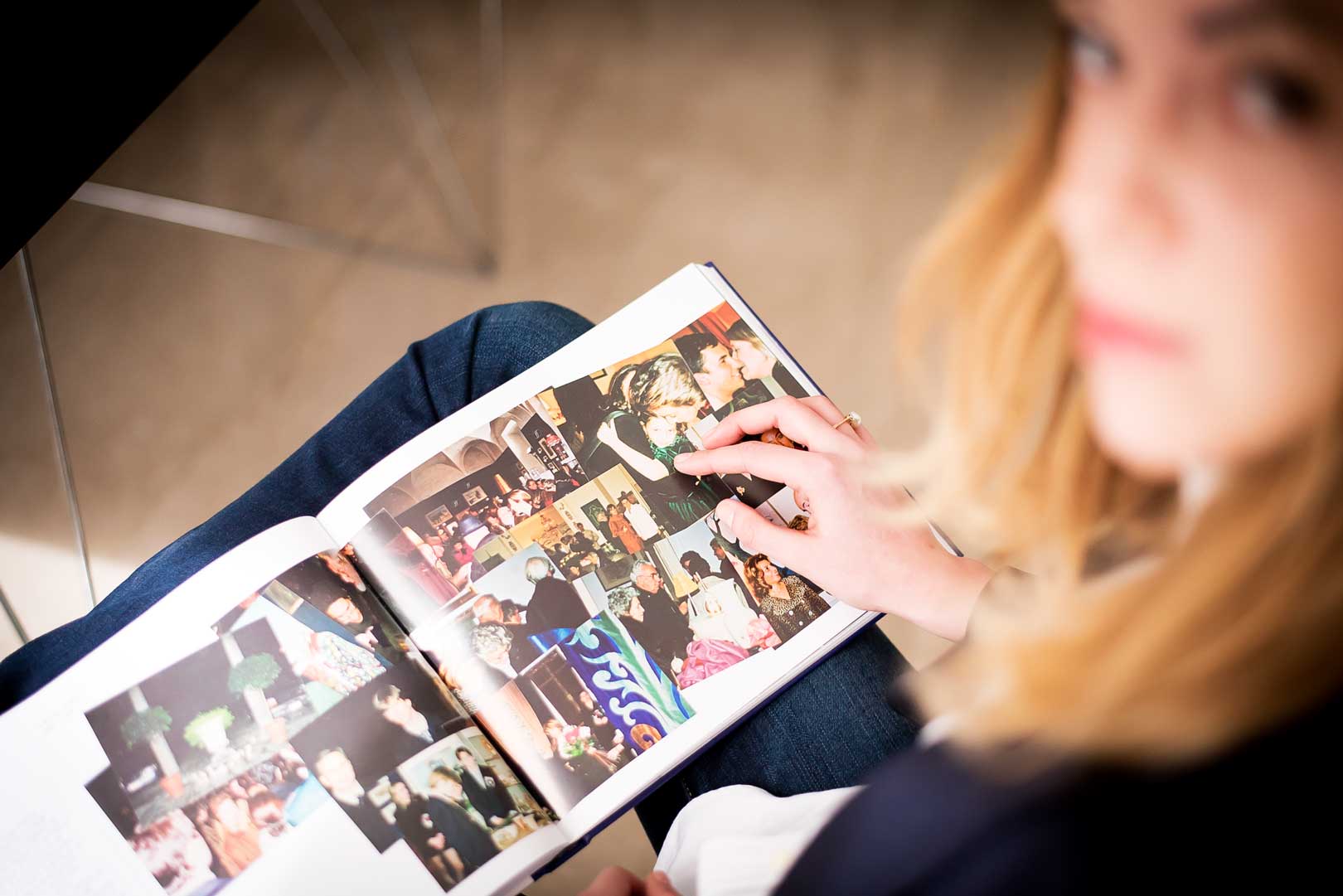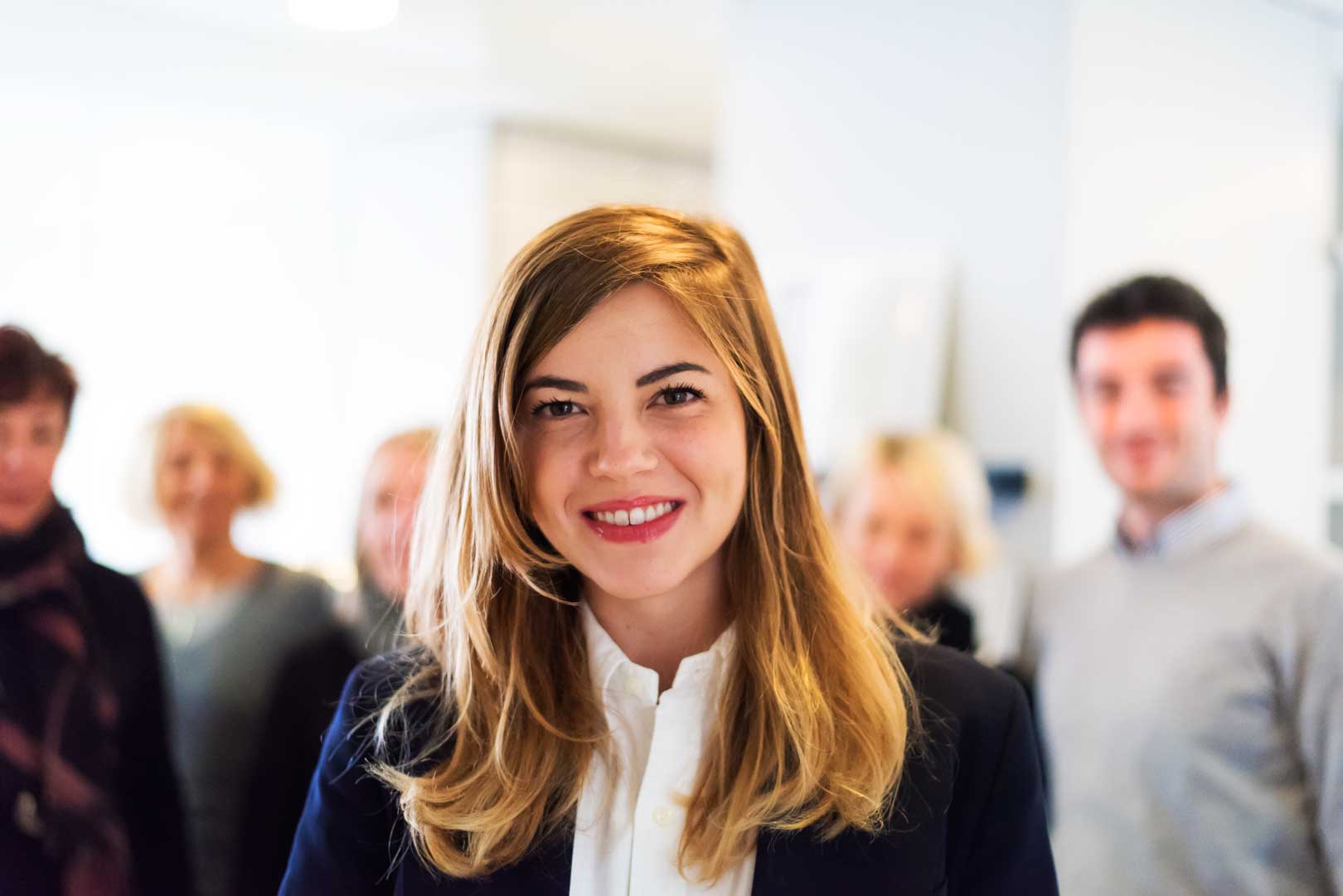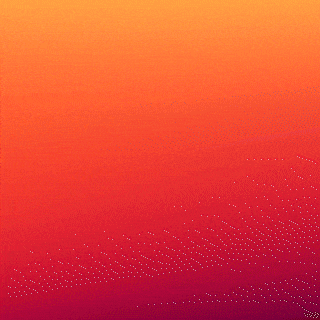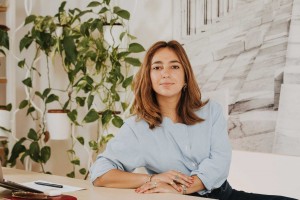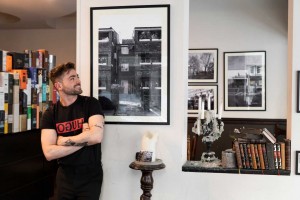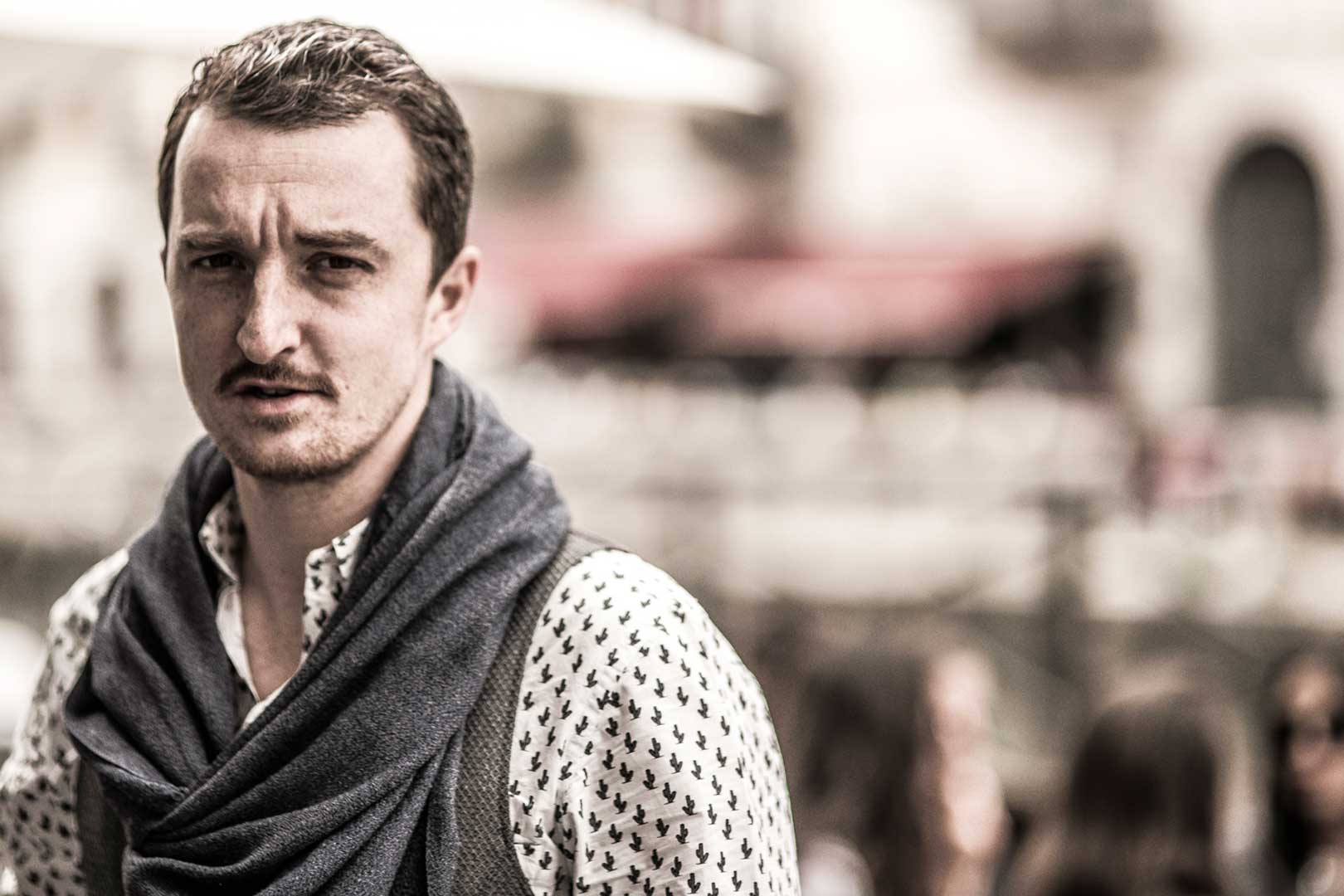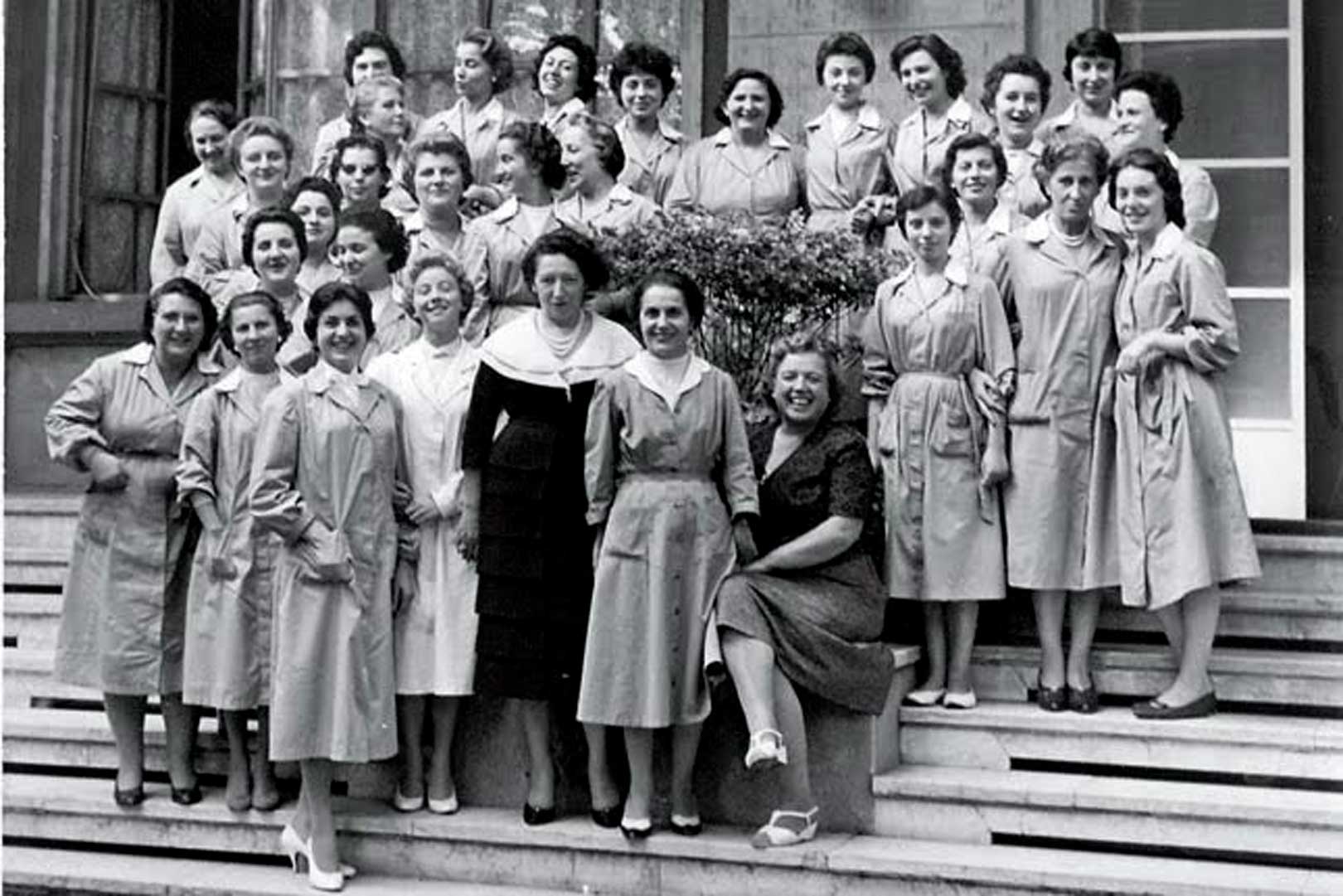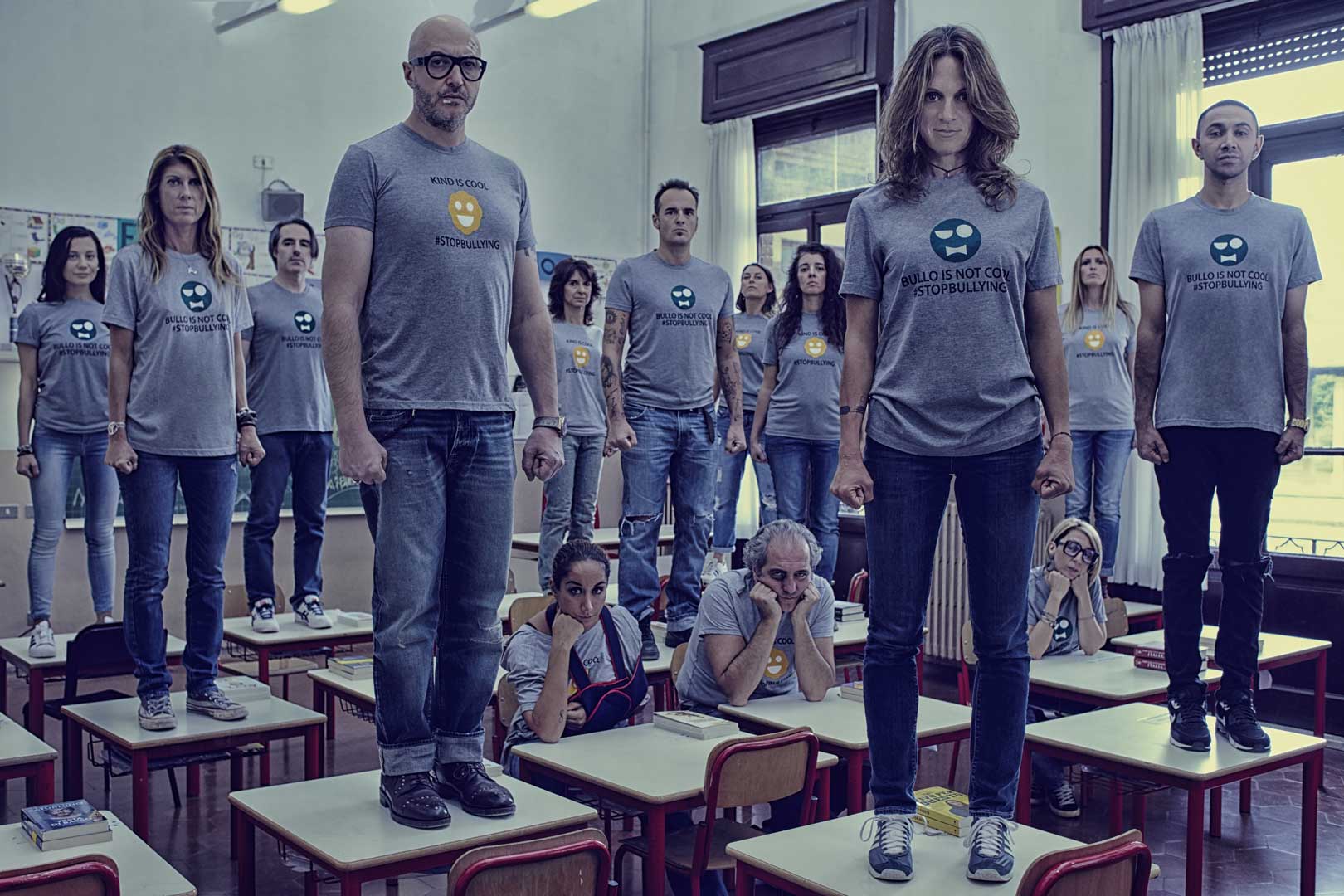Maddalena Floriani, class of 1990, “Bambi” for friends, graduated with full marks in Philosophy at the Università degli Studi of Milan in June 2014. After an Master of Science in International Healthcare Management at SDA Bocconi and many years dedicated to volunteering, she decided to direct her career to supporting terminal patients and palliative treatments. She took part in the project “Improving the course of terminal oncological patients at the Humanitas Clinical Institute” and then dedicated her full self to the Floriani Foundation, a non-profit organisation founded by her grandparents Virgilio and Loredana way back in 1977, with the goal of spreading and applying Palliative Treatments. It is there, at the Foundation, that Maddalena works with enthusiasm and dedication as a Researcher for the Floriani Research Foundation.
At the moment she is personally partaking in a national research project aimed at testing a clinical governance model integrated with Local Palliative Care Networks, whose main goal is that of demonstrating the efficiency and effectiveness of the model in terms of the patients and their families’ quality of life as well as a better allocation of resources for the Italian National Health Service (SSN).
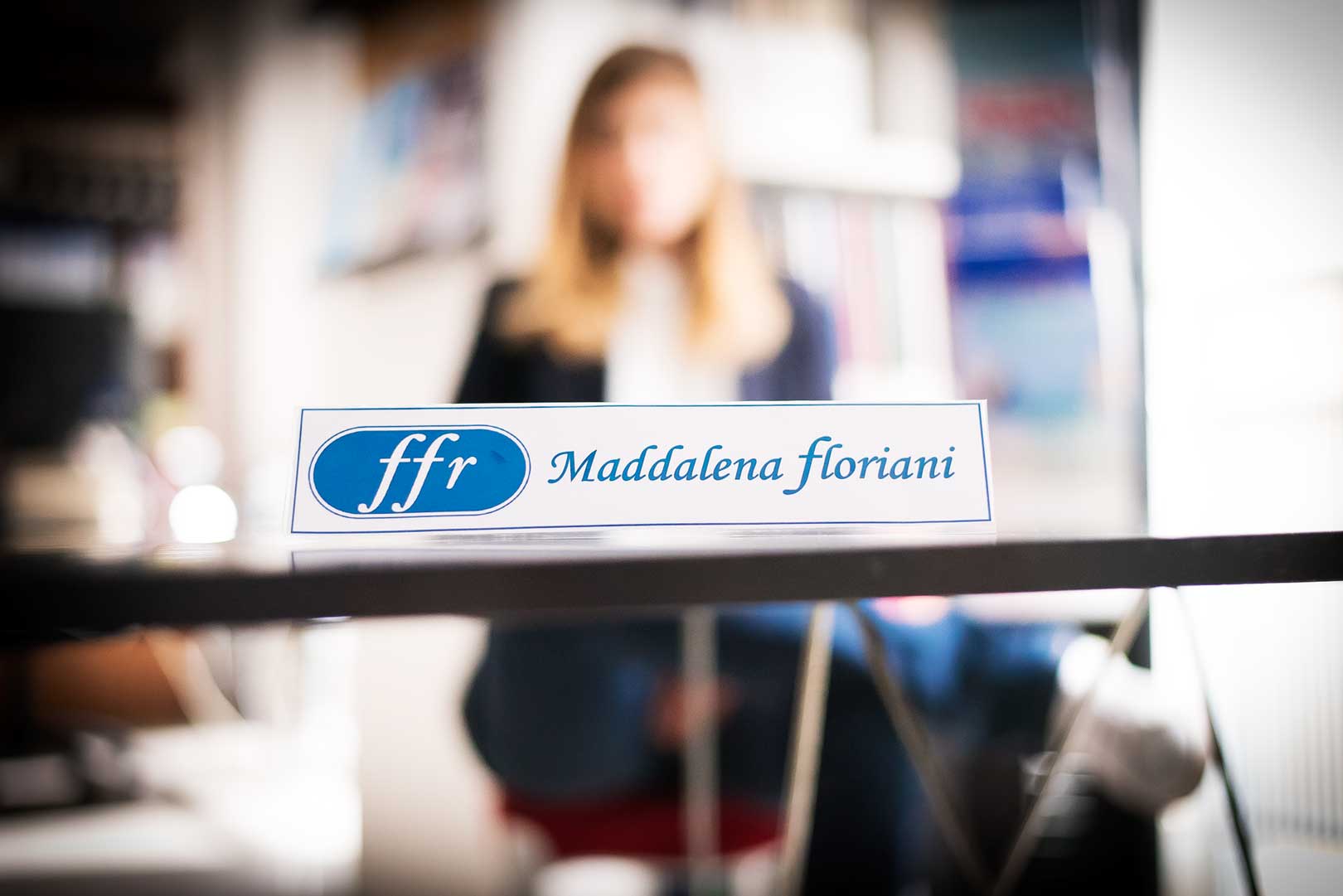
Maddalena’s office at Fondazione Floriani
Hi Maddalena, first and foremost we would like to thank you for having accepted to take part in this interview and we would also like to congratulate you for your journey and for your constant dedication to helping others. We are glad to be able to ask you a few personal questions and to get to know your point of view regarding our dear city.
1. If you had to explain your job with a phrase or a few words, which ones would you choose?
Research means accepting that no result is the finish line but always a new starting point. This makes it undeniably stimulating but at the same time it doesn’t allow you to stop.
2. What is, in your opinion, the greatest challenge in your work?
The real challenge is not so much the daily confrontation with life, death, and suffering, but being able to approach them deeply while maintaining a healthy detachment at the same time.
3. What role does the Foundation play in the context of the city and Italy as a whole?
The Floriani Foundation was born in Milan in 1977 with a donation from my grandparents, Virgilio and Loredana. It’s an apolitical, secular, non-profit entity, with the goal of spreading and applying Palliative Treatments to assist terminal patients. These are those treatments that tackle all facets of the patient’s suffering: the physical, the psychological, the spiritual, and the social.
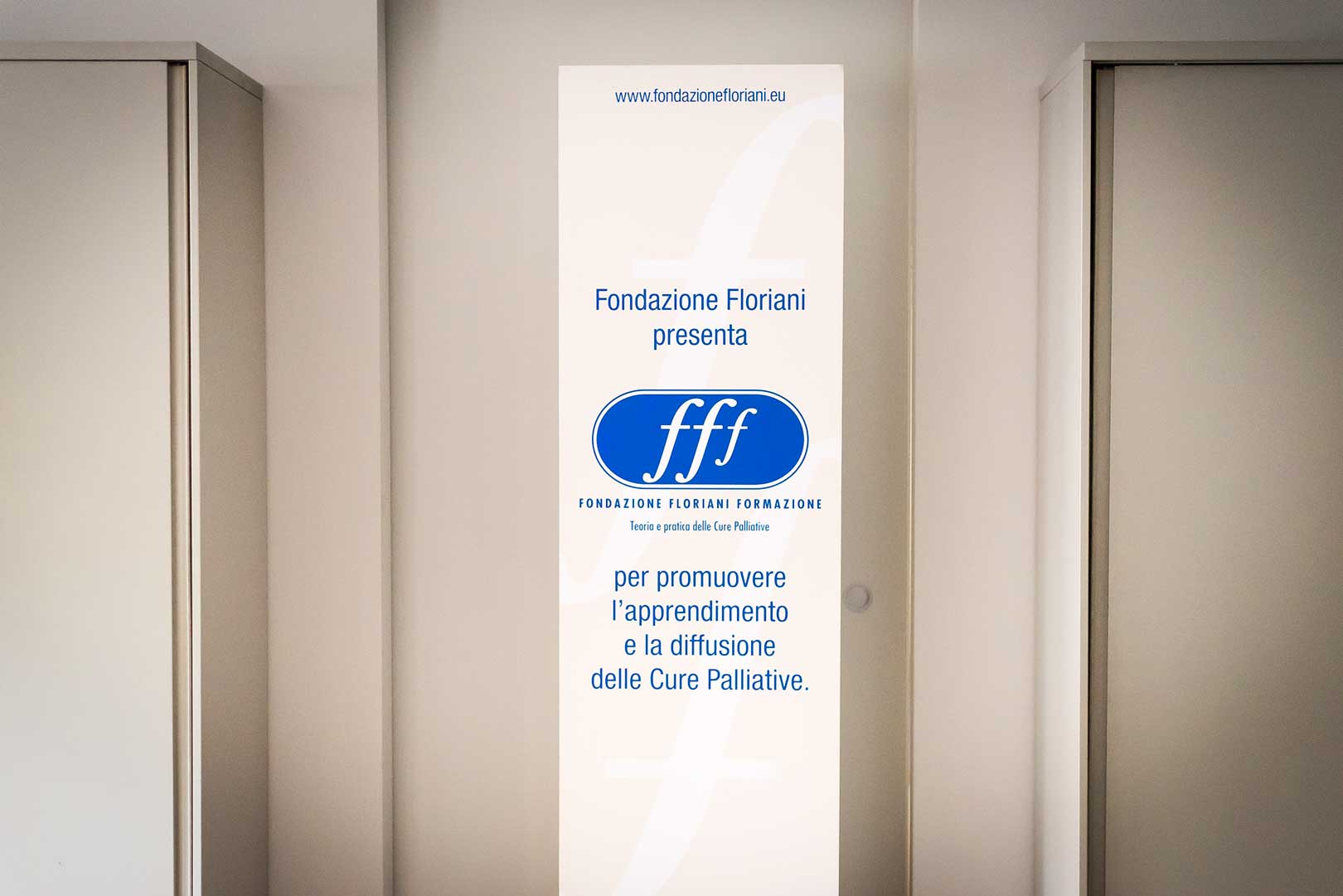
It was the first in Italy to institute a service to assist terminal patients and their families in their own homes, free of charge. This service, which was then named “Floriani Model”, envisages the intervention of a multi-professional team and led by example other organisations in Lombardy and in the country as a whole.
More recently, the Foundation was the main inspiration behind the 38/2010 Law (“Arrangements to ensure access to palliative care and pain therapy”), which enshrined the right of access to palliative treatments for all citizens.
4. You represent the third Floriani generation in the Foundation. What are the main innovations that you would like to introduce? Where do you see the Foundation and where do you see yourself in 10 years?
The next goal is expanding our scope. So far most of the palliative treatments have been implemented as a response to cancer patients, but out of the 250,000 who need these treatments in Italy, only half are cancer patients. Scientific discoveries inevitably lead on one hand to grandiose delusions and on the other to putting the human component of healthcare aside. In this sense the real innovation will be rendering the palliative approach a cultural approach, because suffering is not just physical, but global, spiritual, familiar, social. Pain relief is everyone’s right, and for this reason I must continue our fight. An integral part of this reasoning is reaching the institutionalisation of University teaching of palliative cares and the underlying culture.
5. Consideration for your neighbour is for you a family matter: how was it to become part of a organisation such as the Floriani Foundation, which is unique in Italy?
It isn’t up to me to say, luckily it was you who said it! (laughs, editor’s note). I would say that it was very natural: since I was little I would come here to do my homework instead of going to the after-school club! Although on one hand it wasn’t hard to familiarise myself with this environment, on the other hand managing this “familiarity” hasn’t always been so natural.
6. What makes you happiest about your work? What’s the thing you like the least?
Without a doubt the thing that makes me happiest is having been trusted by my family and by the people who have always worked at the Foundation so that I could begin my journey with them. However working with family members, with whom you inevitably have an emotional connection that goes beyond the office desks, isn’t as easy as it seems.
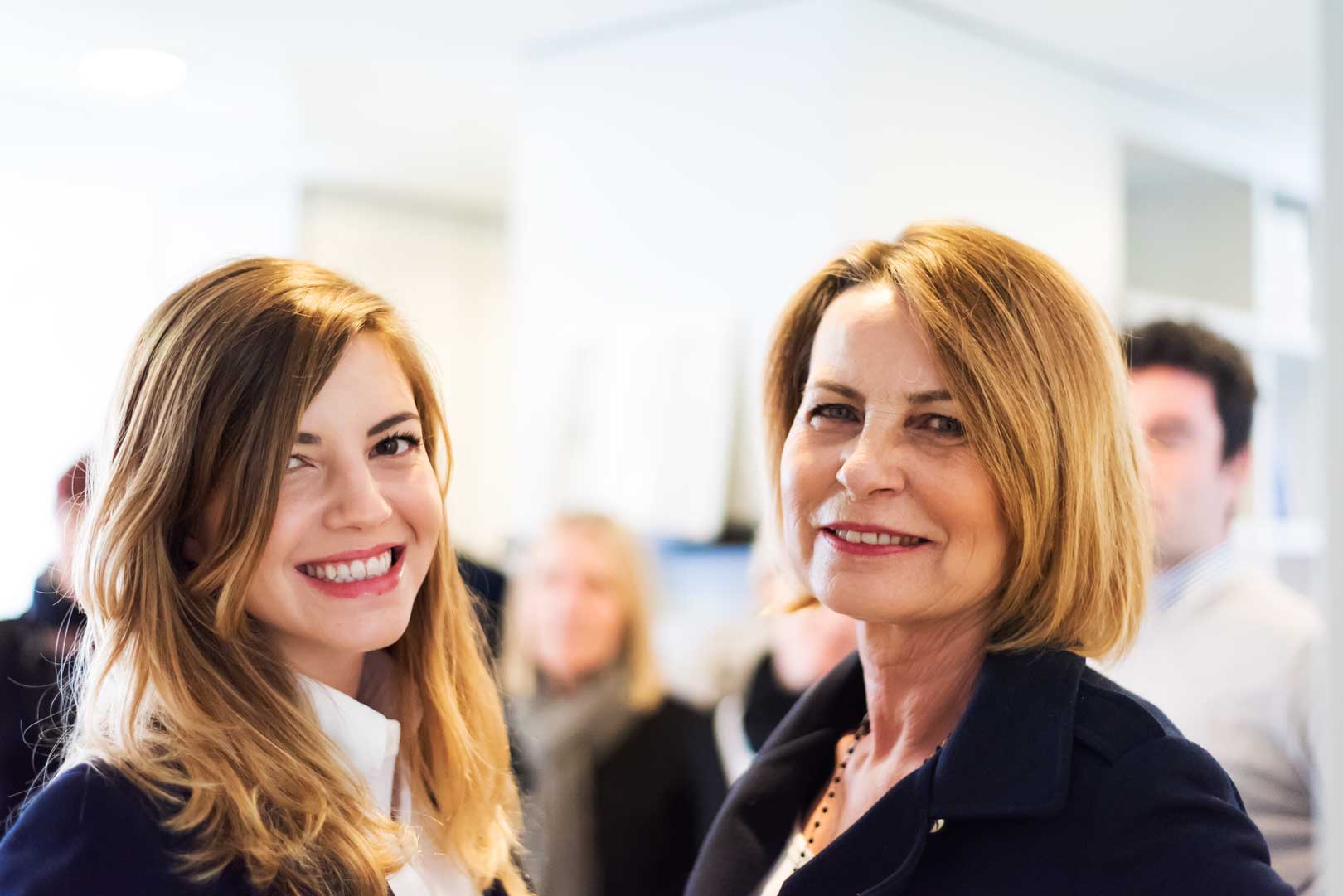
Maddalena and her mother, Francesca Crippa Floriani.
7. Is there any particular project, among the ones in which you are involved, that you’d like to tell us about?
Beyond research, I am personally involved in a new project at the Foundation, called “Before I die I want to…”. Is a photographic project made with old Polariods, born in America almost 10 years ago, thanks to two young New Yorker women. The project collects the wishes that people of all ages and from all around the world write on the Polaroid that was taken of them. Its goal is to favour dialogue on the goals and finiteness of life and giving people a chance to think and act on what is truly important with a simple question: “What do you want to do before you die?”. To this date, after having travelled the world from the United States to Japan, through India and Venezuela, more than 2,000 photos have been collected. This wide range of wishes of societies so different from each other makes it possible for anyone to access an intercultural comparison and reminds us of our common (finite) humanity. Starting May 2016 it will be in Italy, with the Foundation, to give voice to our wishes too.
8. When will you consider yourself satisfied of your journey at the Foundation? Are you already so? What will your next steps be?
Being able to create what my grandfather was able to build will never be possible for me, because I don’t have his brain and I do not live in the same historical context but in one much more difficult and complex. It will be a great satisfaction for me to be able to keep everything that has already been done alive, continuing to further our mission.
9. What would you like to say to those who would like to begin collaborating with you or enter this field?
I would tell them that if they want to do this to further their career or to enrich themselves they’d better not.
To work this job you needs to take into account your ideal tension and willingness to put your own civic spirit on the line, otherwise it wouldn’t be easy to tolerate the many frustrations that are encountered and that are not compensated with higher pay or career prospects.
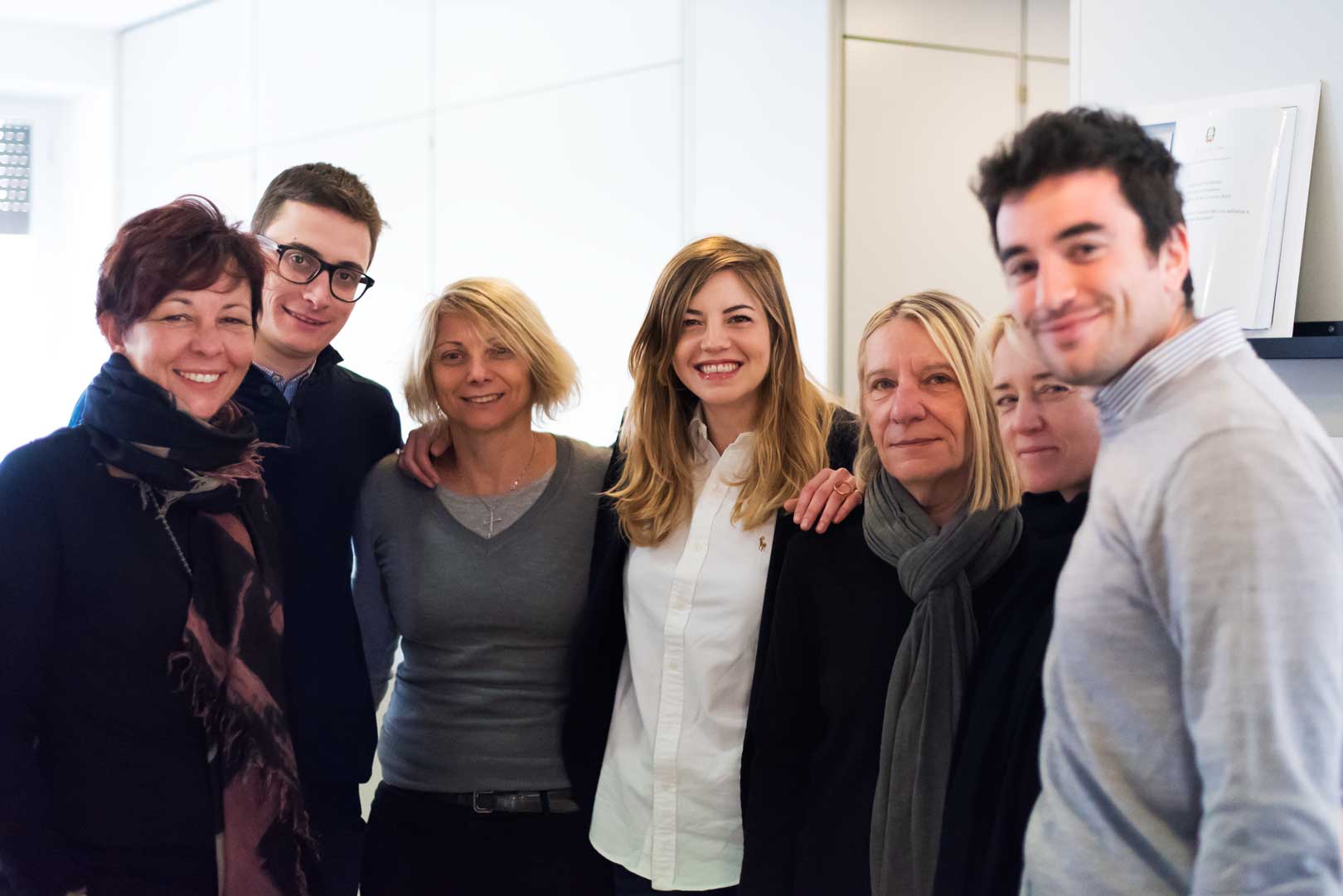
Maddalena with the rest of the staff at Fondazione Floriani.
10. Can you tell us about your Milan in three places and why?
I’m a supporter of the local economy: I love Brera, my neighbourhood, and I spend most of my time there.
– Osteria dei poeti. The food is great, ancient tradition. It’s cheap and very simple.
– Odilla Chocolat. I eat a load of chocolate candied clementines at least once a week.
– Riga dritto. My obsession: stationery shops, unfortunately a threatened species!
11. Your favourite place in Milan for the following occasions:
Brunch – Libreria del Mondo offeso. In one of the most picturesque squares of the city (Piazza San Sempliciano) you can have a bite amongst books.
Lunch – Il circolo reduci e combattenti, Bastioni di porta volta. It’s close to the office and it’s a dive into the ‘50s.
Happy Hour – I follow the Lubar!
Dinner – Shion in via Camperio. Minimal chic but fresh and authentic Japanese cuisine.
Evening – Club Haus’ 80s absolute revival.
Relax – Manicure and Pedicure at the Chinese store in via Pontaccio.
Sport – Only with Gianluca from Virgin Active! (Corso Como)
12. Weekend in the city: can you tell us about your ideal day?
Late alarm, brunch with friends, shopping that I don’t do during the week, manicure and pedicure at the Chinese store in via Pontaccio, always open, park with the grandchildren and cinema and pizza at Pino’s Sunday evening in a tracksuit!
13. If a foreign friend of yours, who’s never been to Milan, visited the city, where should he absolutely go?
To understand its history with a single glance he should see the Castello Sforzesco, go to the top of the Duomo, on the Darsena and Santa Maria delle Grazie, to catch its present: a stop in Piazza Gae Aulenti.
14. A treat for our readers: your favourite “hidden corner” in Milan. Can you reveal it to us?
The jumper stall at the Saturday market in via Fauche! Beautiful fabrics, jacquard or handmade, six threaded cashmere at €60, but it depends on the moment: like they say, “Seek and ye shall find”.
Thank you again and good luck with all your projects! Our heartfelt congratulations from the editorial staff at Flawless Milano.


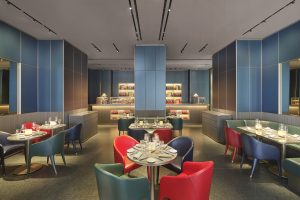 Emporio Armani Caffè e Ristorante
Emporio Armani Caffè e Ristorante  Alba White Truffle Fair
Alba White Truffle Fair 